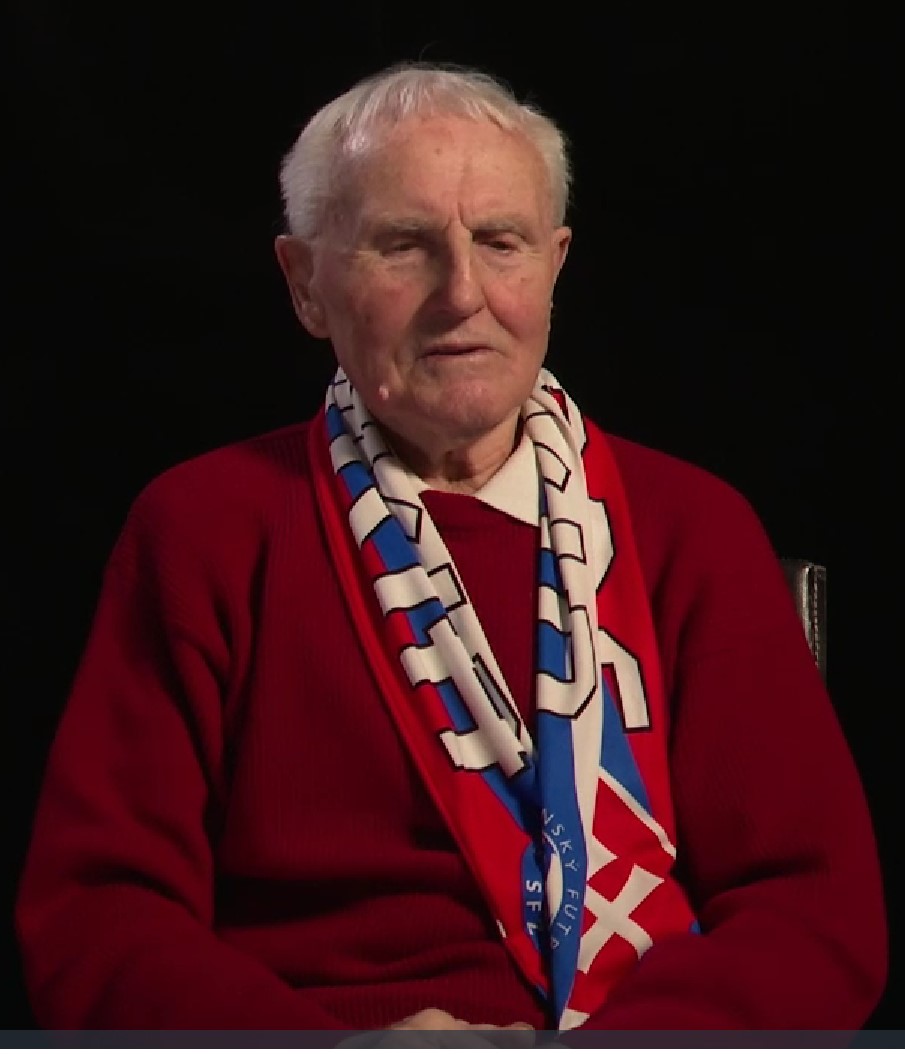“I was thirteen years old, and I already played for the Vlčkovce youth team!”

Download image
Former Czechoslovak football player Jozef Štibrányi was born on January 11, 1940 in what was then Farkašín, now known as Vlčkovce. The father, Jozef Štibrányi the elder, was a native of Vínoviec and was born in 1905. The mother, Katarína Kotvasová, came from Vlčkoviece and was only a little younger than her better half. Jozef was their third son, since he had a brother Ján who was five years older and a brother Kamil who was nine years older. There was never a problem with survival, since the father worked as a guard on the railways and the mother made extra money by sewing. Jozef attended the first four classes of elementary school at home, in Vlčkovce. He has already completed the next three classes in Križovany. All boys from the family were active in sports. The boys probably inherited their enthusiasm from their father, whose favorite hobby was definitely football. Jozef became a part of the teenagers, or in other words a part of Benjamin, already at the age of thirteen. At the age of fourteen, he became part of the regional team and played his first international match in Soproň. Later, as a teenager, inclusion in the team of Slovakia, Moravia and Czech awaited him. Although Jozef lived only by football, his education was not allowed to fall behind, and in the meantime he became a student at the Trnava grammar school. Likewise, in 1956, he joined Spartak Trnava’s youth team, and along the way, he also represented his country at the European Youth Tournament. In 1957, Jožko became part of the Czechoslovak junior team in Luxembourg. After finishing high school, he was persuaded to transfer to Liberec, a solid second league, while also joining the local textile college. He was not satisfied, and after a few months, i.e. at the turn of 1958/1959, he returned back to Trnava, to Spartak. After returning from Liberec, Jožko did not give up his studies and became a student at the Pedagogical Institute in Trnava, which he graduated by successfully passing the state exams in 1963. Perhaps unforgettable was the World Cup in football in 1962. He then traveled to Chile, where he was an active player in the first three games. Czechoslovakia took second place at the championships, also thanks to him. In 1963, Jozef quit the national team and subsequently completed compulsory military service in 1964/1965. The first half in Dukla Prague and the second half in Dukla Tábor. He still played football, while he also had an excellent income for Dukla. He finished there in June 1965 and for the next two years he again became a part of Spartak Trnava. He maintained an active career as a football player until 1971, and ended it as a player in Vítkovce. Meanwhile, he got married and started a family. After ending his football career in 1971, Jozef started teaching at the elementary school in Križovany. He worked there for many years, until 2001. In 2001, Jozef retired, feeling unappreciated, as he did the impossible for the school, but not everyone appreciated it properly. Later, he enjoyed his retirement years spending time in the garden and he did not begrudge active sports either.

